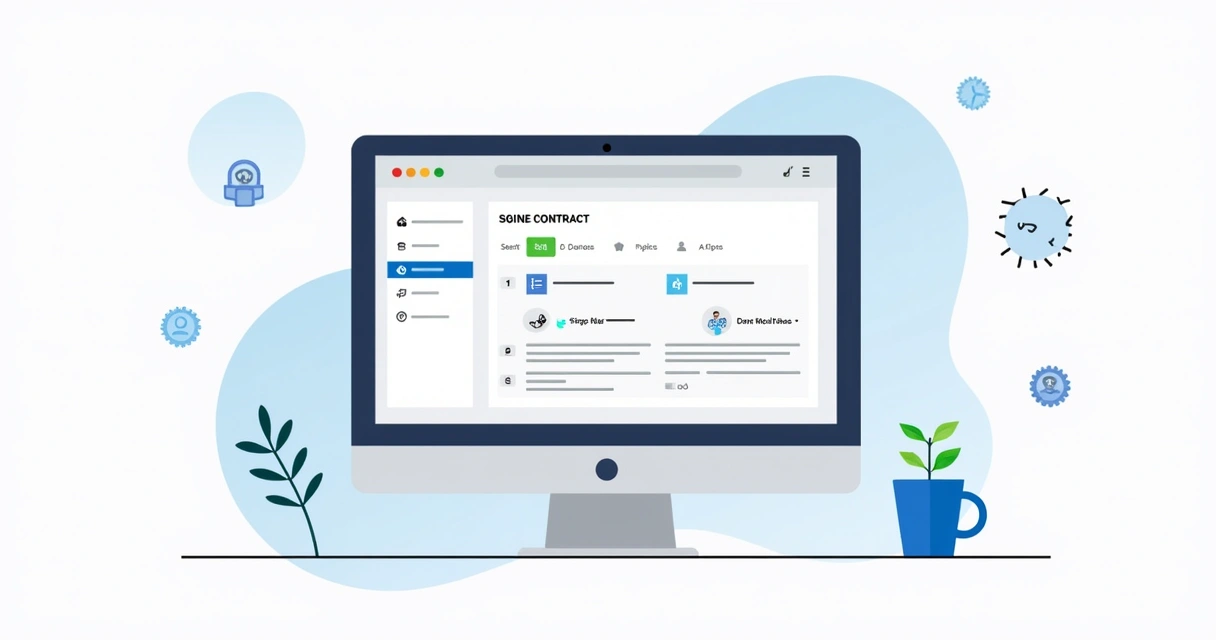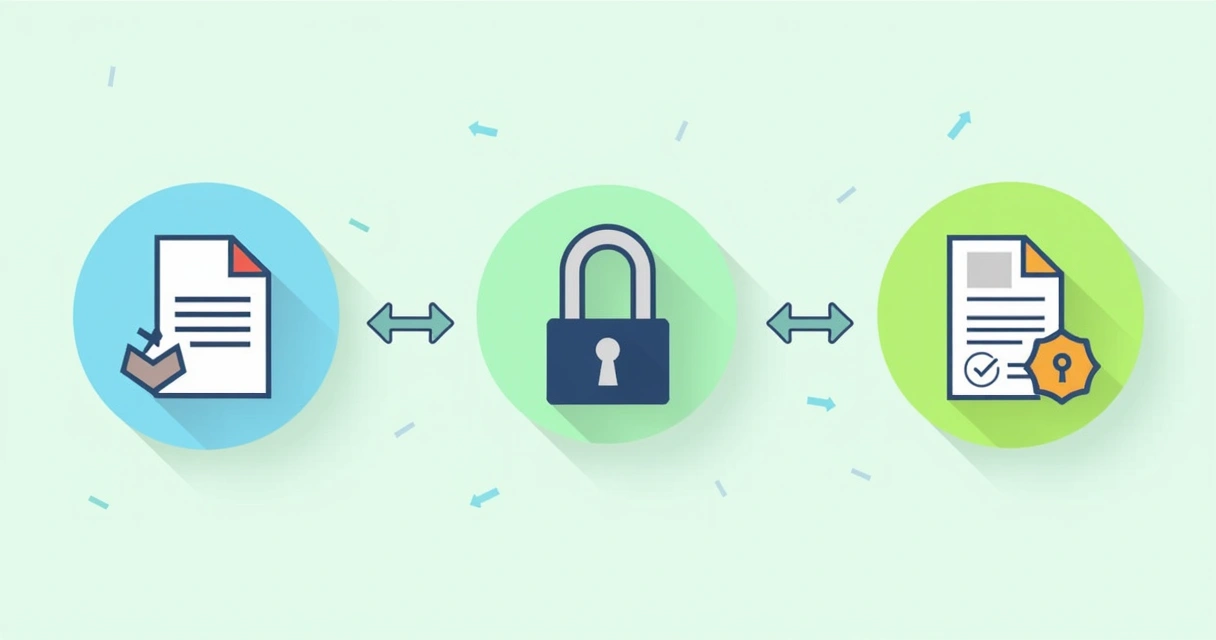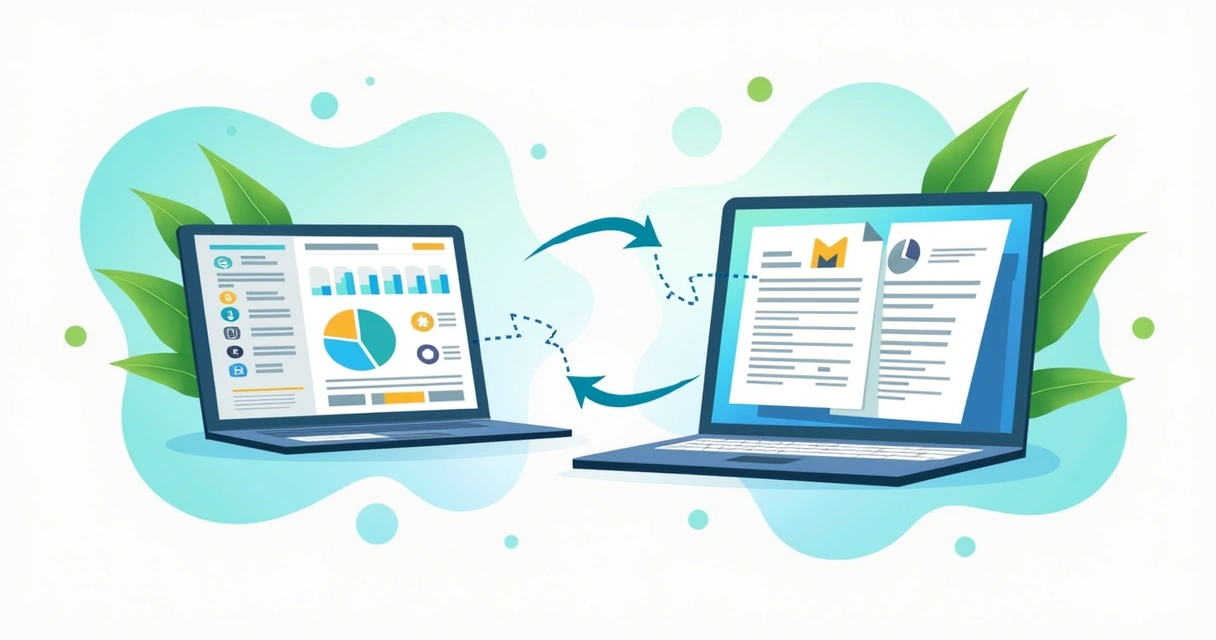The world doesn't wait for anyone, and neither should your documents. The way we sign agreements, send contracts, and verify identities has changed. If you’re still using paper, there’s a sense you’re running a race in slow motion, right? With new security risks and businesses craving speed, trust, and cost savings, digital signature software has taken center stage.
Still, even with the hype, there’s confusion. What is an electronic signature, really? How does it differ from a digital signature? How does the law actually treat a document signed in the cloud? And, which solution puts you ahead as 2025 unfolds? Let’s pull back the curtain, using facts, stories, and the newest insights, with a little detour through what makes CloudSign.ie stand out from the old models and even some tech giants.
What electronic and digital signatures actually mean
There’s a common mix-up here, so let’s clear it up. “Electronic signature” is a wide term. It covers everything from a click-to-sign button to scribbling with your finger on a touchscreen. If you scan and email your handwritten signature, that counts too.
A digital signature, on the other hand, is a special kind of electronic signature. It uses cryptographic methods to guarantee the document hasn’t been altered. Think of it as an armored security guard for your paperwork.
A digital signature is not just a squiggle, it’s proof the document is authentic and unmodified.
The big takeaway? All digital signatures are electronic, but not all electronic signatures have the legal weight and tamper-proof seal that comes with true digital signatures.
Legal recognition and trust
The real test comes when you ask, will a court accept this? In the EU, the eIDAS Regulation draws the line: a qualified electronic signature is the gold standard and is treated like a handwritten signature across member states, including Ireland. Still, even lower levels (advanced or simple e-signatures) count as evidence in most situations. For a deeper look at what’s valid under Irish law, take a look at our guide to electronic signature laws in Ireland.
What matters most: matching the right type of signature with the risk level of the contract.
Why businesses are making the switch in 2025
There’s no shortage of reasons to go digital, but the biggest are pretty universal. You don’t have to be a tech giant with an army of lawyers to feel the benefits, and it’s not just about moving faster.
Saving time in ways you never expected
Let’s face it, tracking down a wet-ink signature means: print, sign, scan, email, and hope it doesn’t sit in someone’s inbox for days. With an online signing tool, turnaround times can drop from a week to a day, or even minutes.
- No postage delays
- No printers or paper jams
- Real-time notifications when someone opens or signs a document
- Automated reminders so nothing is left unsigned
Cutting expenses, sometimes more than you expect
Some costs are obvious: less paper, less postage, fewer printer repairs. Others are hidden, like the hours staff waste managing manual paperwork. With digital signature software, labor costs drop, and teams have time for more meaningful work.
Studies from Grand View Research predict the global digital signature market will surge from $5.24 billion in 2024 to $38.16 billion by 2030. That growth is driven by businesses finally seeing the hidden costs of sticking with old routines.
Boosting legal certainty (and sleeping a little easier)
A digital signature creates a clear audit trail. Every action, who signed, when, where, what device was used, gets documented. For companies, this means fewer disputes and easier compliance. If someone tries to deny a signature, the system’s logs and encryption provide solid evidence.
Clarity, not just speed. That’s often what separates confident companies from those chasing their tails.
For those needing extra peace of mind, platforms like CloudSign.ie don’t only automate the workflow, but also meet strict EU rules, including GDPR and eIDAS.
Features modern platforms must have
Just putting a ‘sign here’ button on a PDF isn’t enough in 2025. The software needs to do the heavy lifting for both security and convenience. Here’s what sets the best platforms apart.
Notifications and real-time alerts
You send a contract. How do you know it wasn’t ignored? Or stuck in spam? Instant notifications, when someone receives, opens, or signs a file, keep business moving. No more endless follow-ups or losing track.
Tracking and audit trails
Every signature action gets logged, timestamped, with detailed information about the signer and device. This record acts as a backbone if legal questions come up. Especially when remote working is common, it’s reassuring to know you have proof.
Document templates and workflow automation
If your team sends the same agreement every week, creating templates saves hours. Automated workflows can assign different roles, approvers, signers, viewers, so nobody gets missed.
For instance, on CloudSign.ie, you can set up templates with placeholders for key data, merge it automatically from a CRM, and reduce the risk of manual errors.

Role-based access and user management
Sensitive agreements can’t be open to just anyone. The ability to restrict access, define roles, and set permissions is now standard in digital signature software, not a bonus.
Audit logs and version control
Suppose a document changes before signing, who made the edit and when? Detailed audit trails make sure every step is tracked, minimizing disputes and misunderstandings.
Cloud storage and integrations
Storing documents in the cloud isn’t just about convenience, for many industries, it’s a compliance necessity. For extra productivity, the software must connect smoothly with existing tools:
- CRM systems (like Salesforce, HubSpot, Zoho)
- Cloud storage (Google Drive, Dropbox, OneDrive)
- Collaboration apps (Slack, Teams, email platforms)
- ERP, HR, and finance software
Integrations mean no double entry, fewer errors, and less jumping between apps.
Security technology: under the hood
No one wants to worry if a contract is legitimate, or if it could be tampered with. That’s where the technology truly matters. Here’s what’s working behind the scenes.
Encryption and digital certificates
Each digital signature uses cryptography, math that scrambles and protects the document’s data. When someone signs, a unique certificate links the signature to their verified identity. This makes it extremely hard for anyone to forge or alter the document after signing.

User authentication: who’s signing?
Passwords are only the beginning. Today, multi-factor authentication (text messages, one-time codes, biometric scans) is common. Biometric technology, like face recognition or fingerprint ID, will only expand over the next few years.
CloudSign.ie, for example, keeps up with multi-factor authentication for extra peace of mind, ensuring that only the intended signers touch your files.
Blockchain and audit trails
For the most sensitive contracts, blockchain can make audit trails nearly impossible to alter. While it’s still emerging, some platforms already use blockchain, increasing accountability and transparency. In the next five years, more businesses will likely use blockchain mainly for use cases that require enduring proof, a hospital consent form, real estate transaction, or international compliance record.
Automating your workflow and integrating systems
Digital signing is only one stage in a bigger story: automating the full agreement process. The more routines you automate, the less you depend on memory or manual handoffs.
From contract creation to renewal
Let’s say you generate sales proposals from a CRM. Modern software can pull data directly into templates, assign the right recipients for approval, handle signing, and even schedule reminders before a contract is up for renewal. No missed deadlines, no lapses in service.
CloudSign.ie links with leading CRMs and cloud storage platforms, so contract details are always synced and accessible, and you never lose track of an agreement’s life cycle.

Reminders, escalations, and tasks
No more “I forgot” when a signature is overdue. Automated reminders chase the bottlenecks for you. For complex approval chains, say, legal, then finance, then management, escalations route files to the next person, seamlessly.
Automation means your contracts are always moving, even when you’re not watching.
Choosing the right tool for your team
The market is crowded. Adobe, DocuSign, SignNow, and Dropbox Sign make big promises, but as companies look for local support, competitive pricing, and features tailored for Irish and European law, CloudSign.ie has become a favorite for businesses looking to balance security, usability, and automation, with the bonus of a free-forever tier for individuals.
User experience: does it work for everyone?
The fanciest encryption doesn’t help if “signing” takes ten steps. Choose tools that are genuinely easy, especially for clients or suppliers less used to tech.
CloudSign.ie was designed so that lawyers, freelancers, or field staff can all use the system without a big learning curve. Dynamic templates, clear notifications, and support in plain English, not endless tech jargon, make a real difference.
Security focus: not all solutions are equal
Verify what’s really happening under the hood. Some competitors offer “e-signatures” but don’t add the digital certificate level or log actions in detail. Others might store data in regions outside the EU, which can matter a lot under GDPR.
For European clients, look for guarantees regarding where your data lives, strict adherence to local and international regulations, and transparent audit logs.
Value for money, don’t just look at headline prices
Pricing models differ a lot. Some charge per envelope, per signer, or only at the business level. For solo professionals or small companies, CloudSign.ie offers a forever free plan, which covers up to 21 documents a month for one sender, enough for many individuals or small teams just making the jump away from paper. For more details on who can benefit, our article on electronic signature basics tells the full story.

Support and compliance
When something goes wrong, like a lost password or a contract stuck ‘pending’, fast support matters. Look for companies with strong reputations for responsiveness and deep expertise in local law. CloudSign.ie shines here, with Ireland-based support and a knack for cutting out unnecessary delays.
Workflows, compliance checklists, and ways to sign documents online for free all come as part of the package, not afterthoughts buried in footnotes.
Technologies shaping the next wave
It’s never static. Advances appear all the time, each one promising less friction and tighter security.
Biometrics and behavioral analytics
Signing with your fingerprint or face? This is rapidly extending beyond buildings and phone screens. More solutions combine biometric ID with digital certificates to cut fraud. Behavioral checks (like how you hold a device or type) add extra layers for high-value contracts.
Mobile-first design
People want contracts signed on the train or at the airport, a full-featured mobile app isn’t optional anymore. Platforms prioritizing responsive design and secure authentication on mobile make life easier for traveling teams and remote operations.
Integrating AI and smarter automation
Some systems now use AI to read and flag risky language in contracts or to suggest changes based on your history. For Irish businesses, this means fewer mistakes and more time saved scanning for compliance or renewal terms. The Insight Partners predict smart automations will dominate the software market by 2030, giving modern businesses an edge with reduced errors and faster turnarounds.

Practical use cases: freelancers to large enterprises
It’s not just headline-grabbing banks and IT companies using these solutions. Here’s where digital signature tools are quietly reshaping how we all do business in 2025:
- Freelancers speed up contract approvals, get paid faster, and don’t lose deals to slow paperwork (details for freelancers).
- Small businesses cut bottlenecks in HR and sales, reduce admin overhead, and appear more professional to clients (guide for SMBs).
- Health and legal professionals ensure records are tamper-proof and comply with both GDPR and the highest eIDAS standards.
- Large enterprises automate expiration and renewal notices, feed contract details into ERP and finance tools, and meet global data residency requirements.
- Remote teams collaborate regardless of geography, keeping onboarding and approvals moving even when staff are traveling or working from home.
Plenty of companies use Dropbox Sign or PandaDoc, but the learning curve, pricing, and support often miss the mark, especially for users needing strong European compliance or a cost-effective entry point before scaling. CloudSign.ie stands out with its tailored features and free access for individuals, ensuring even one-person businesses can join the transformation.

The legal backbone: validity, compliance, and peace of mind
Security and legal compliance are more than buzzwords, they’re survival skills. Across the EU, digital signatures backed by proper certificates hold up in court and satisfy regulators.
What businesses worry about most: Will the document be accepted if there’s a dispute? Will GDPR or contract laws trip up a deal at the last minute?
Here’s what to look for in any provider:
- Alignment with eIDAS and GDPR for all core features
- Clear user consent at each signing step
- Detailed, exportable audit trails that prove who, what, and when
- Option to use ‘qualified’ digital signatures for the hardest legal tests (government tenders, some real estate deals)
To protect your business, use providers that publish transparent policies and update frequently when regulations change.
We cover these aspects further in our article on the beginners’ guide to electronic signatures, which doubles as a checklist for compliance.
How the future shapes up: market growth and digital transformation
Digital signature software is spreading fast, across industries and regions. According to Fortune Business Insights, the global market will rocket from $9.85 billion in 2025 to over $104 billion by 2032, as more sectors require remote decision-making and tamper-proof contracts.
Growth is highest in North America and Europe, but Asia-Pacific is close behind. Sectors leading the adoption: healthcare, government, finance, and the booming remote/flexible work economy. Local solutions with tight compliance and solid integrations see the quickest take-up.
For teams thinking about digital transformation, the growth statistics from Grand View Research provide a wakeup call, it’s not just a trend, it’s the new foundation for fast-growing businesses.
Conclusion: sign the future, not the past
Old ways keep you waiting. Modern business needs speed, trust, and proof that you own your decisions. Digital signing isn’t just about replacing paper, it’s about making the world fairer, safer, and a whole lot faster.
With more people working global hours and laws strict as ever, there’s never been a safer time to give up the printer for good. CloudSign.ie puts the control in your hands, with real-time notifications, airtight security, and the kind of support you don’t get from faceless mega-corporations.
If you want to focus on growing your business, not chasing paperwork, CloudSign.ie is built for you.
Try our free-forever plan for individuals, or talk to our team about tailored solutions for any size business. Ready to make every signature count? Start your journey with CloudSign.ie and watch your paperwork finally keep up with the pace of business.
Frequently asked questions
What is digital signature software?
Digital signature software is a technology that lets you sign documents online in a way that proves the signer’s identity and the document’s authenticity. Unlike a basic electronic signature (which could be any digital mark or typed name), digital signature platforms use cryptographic certificates to make sure your signed contract hasn’t been tampered with. These systems are now used by everyone from freelancers to large enterprises, and solutions like CloudSign.ie offer legally recognized methods compliant with EU and Irish laws.
How does e-signature software work?
E-signature software works by letting you upload a document, specify who needs to sign, and then send it out electronically for review. When a signer agrees, the system uses encryption to lock the document and, in the case of digital signatures, attaches a unique digital certificate. Every action (viewing, signing, etc.) gets logged, and both sides receive an audit report for legal backup. Integrations with tools like CRM or cloud storage automate the workflow from start to finish. CloudSign.ie, for example, allows users to set up templates, automate reminders, and track the whole contract journey from a single dashboard.
Is signing documents online safe?
Yes, signing online is very safe, if you use a trusted provider. Digital signature solutions use advanced encryption and secure authentication (multi-factor, biometrics) that far exceed traditional paper signatures, which anyone could forge or alter. The best applications (including CloudSign.ie) also provide audit logs that make it easy to prove who signed and when, crucial for meeting compliance standards and handling disputes.
How much does digital signature software cost?
Costs vary widely. Many providers charge per document, per month, or per user, sometimes with steep fees for advanced features. Some, like CloudSign.ie, offer a free-forever plan for individuals (covering up to 21 documents a month), letting you get started at no cost. For business and enterprise, prices depend on user count, needed integrations, and security features. The key is to balance your actual usage with what you’re paying for, don’t overbuy for features you don’t need.
What are the best e-signature platforms?
Top global platforms include DocuSign, Adobe Sign, Dropbox Sign, and PandaDoc. However, for businesses needing clear EU legal compliance, local support, better cost control, and free access for small users, CloudSign.ie is a standout alternative. It’s designed to be quick to learn, integrates with top business tools, and offers Ireland-based support, plus, you can start risk-free on the free plan. Choose the one that gives you the features, security, and support you need, without extra costs.
